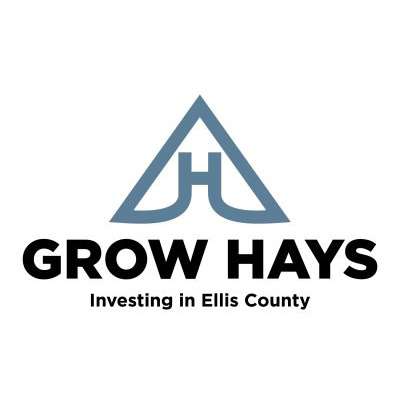By JAMES BELL
Hays Post
Grow Hays, the nonprofit economic development organization serving Ellis County, will soon release its annual report highlighting economic factors in the county. Among insights generated by the report, it highlights a significant increase in sales tax, valuations and transient guest tax collections.
According to Grow Hays Executive Director Doug Williams, the report shows sales tax for the city of Hays was up by approximately 7.6 percent compared to the previous year, indicating people are buying more goods and services, and merchants are selling more products, resulting in a positive economic impact.
The valuations for residential properties were reported up by 12.6 percent compared to the previous year, and the total valuation for the county increased by 13 percent. Additionally, oil valuations showed a significant increase of 1 percent year over year due to the higher per-barrel price in January 2022, he said.

But Williams pointed out that a large increase in oil valuation does not necessarily equate to a significant increase in total valuations as oil reflects less than 10 percent of the overall valuation in the county, which was approximately $458 million.
While the increase in valuations may result in a potential increase in property taxes, Williams noted that an increase in valuation does not necessarily equate to a tax hike. He added that a lot of factors are involved in the calculation of property tax, and it is a complicated formula.
The transient guest tax collections took a significant jump as well, increasing by almost 20 percent compared to the previous year. The increase in the transient guest tax collections indicates that hotels in Hays are doing well and more people are using them.
Williams also said that the pull factor for Hays increased from 1.72 to 1.74, which means that more people are coming into the community from outside and spending money in Hays.
"These 13,000 cars a day that are going by (on Interstate 70)? We want as many of those to stop as we can and spend money here," he said.
Overall, Williams said the annual report showed positive growth in various sectors, indicating a healthy economic environment in Hays, while other western Kansas economic hubs like Garden City and Dodge City are experiencing a slight decline.

The region's growth is important to Ellis County's economy as it affects sales tax revenues, transient guests, tax revenues, and the overall economy. Williams noted that Hays currently has the second- or third-highest pull factor in the state.
Williams acknowledged that the reason for the growth in Hays and the decline in Garden City and Dodge City is difficult to pinpoint but said that having more retail choices and recruiting more retailers will help maintain the city's high pull factor. The organization is also exploring ways to get people to stop off the interstate highway, including the implementation of a Star Bond.
On the housing front, Williams noted that the overall sales volume of the Hays MLS was down 3.3 percent last year due to a previously overheated market in 2020 and 2021. However, the MLS average sales price increased by 4 percent, while the county valuation of residential property increased by about 12 percent.
And while county appraisers often receive criticism, Williams said valuations are determined by a computer algorithm and that evidence-based appeals are a fair process.
Ellis County saw a slight increase in housing inventory and days on the market from the previous year with 48 active listings reported at year-end, compared to 40 in 2021. The increase in inventory, however, did not fully address the supply issues faced by the community. Williams noted that there is still a shortage of housing, particularly in the $175,000 to $275,000 price range.
The increase in interest rates also impacted the market, leading to a slowdown in sales.
Williams said that it would take time to resolve the issue, as it requires the development of land, lots and multifamily units. In addition, challenges related to supply chain and labor shortages have made the situation even more difficult.
"We still have supply issues," he said. "We don't have enough housing. In our community, we're working diligently to try and fix some of that. But we can use some more, and we're going to continue to try and fix it."
Williams expressed the need for continued diligent planning and investment in the community to address the housing shortage.
"I think the next five years in Ellis County are going to be fantastic," Williams said. "If you look at all the large projects are going on and all the things that we've got happening, they're going to be great. But we need to step up to the plate and do some things to do to meet the housing needs and to meet some other needs, the infrastructure needs in not only Hays but in Ellis and Victoria and those places, and use the tools that are available to try and ensure that we take advantage of this."
The report is set to release soon and will be available on the Grow Hays website.






